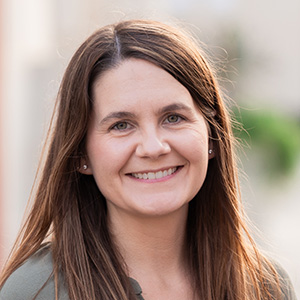Pollard helps her students STEP this way
Growing up in St. Croix, U.S. Virgin Islands, Odaelys Walwyn-Pollard was curious about everything. "I was a very inquisitive kid," she said, "and I asked a lot of questions."
Science was the path that allowed her to answer many of those questions, and her interest eventually led her to the field of infectious diseases and microbes.
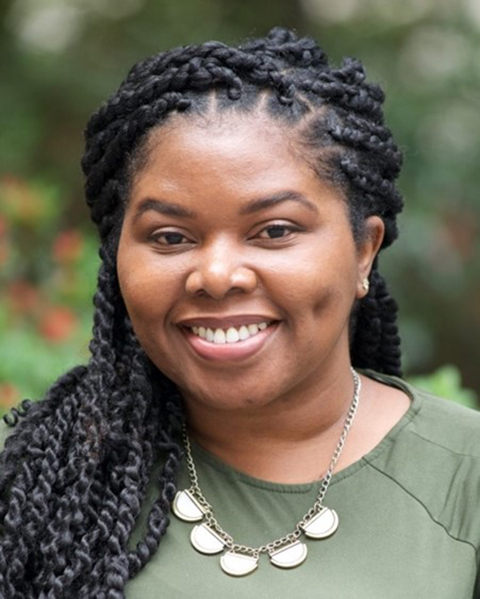
Pollard earned a bachelor’s degree in biology from the University of Virgin Islands, with the intention of becoming a medical doctor. She began to doubt this route, however, after a volunteer stint as a nursing assistant, and as graduation neared, she was at a crossroads, unsure of what career path to take.
One of her mentors, Teresa Turner, recommended a postbachelor preparatory program. As part of the program, Pollard moved to New York for two years to conduct research at the University of Rochester Medical Center. After the program finished, she wanted to continue research so she pursued her Ph.D. at New York Medical College.
Taking STEPs
During grad school, she taught as an adjunct at Pace University and taught and tutored at New York Medical College’s New York state-funded Science Technology Entry Program, or STEP, which supports students who are historically underserved and from low socioeconomic backgrounds.
"We have bright students here who want to do STEM, but they don't have the opportunities," Pollard said, referring to students interested in science, technology, engineering and mathematics fields, "so we started a research program for these students through STEP."
Pollard and a friend recruited five high school students in their first year; they partnered the students with research mentors on campus and taught them some basic research skills. She said she enjoyed the program and being able to "enlighten them in terms of science being something tangible."
In 2015, she earned her Ph.D. in microbiology studying how the parasite Toxoplasma gondii navigates the immune system by looking at mutations in certain genes.
Pollard taught for a year at the Albany School of Pharmacy and partnered again with STEP in Albany at Albany Medical College. She said she came home one night thinking, "I really enjoy doing the outreach and informal science education."
She moved to Rockefeller University's science outreach program, RockEDU, where she stayed for six years. The program offers high school teachers and students opportunities to talk about science and "gives them a first-hand fun view of what being in the lab is about," she said.
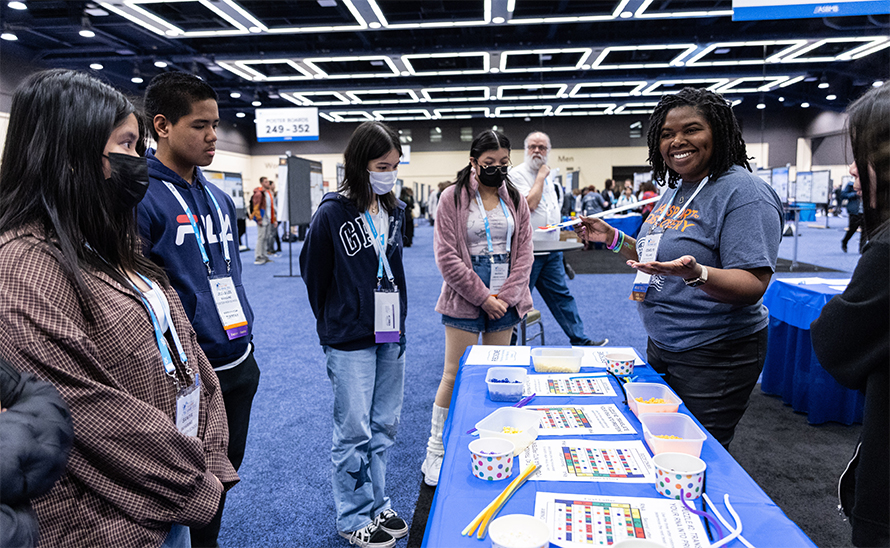
A scientist and a full self
Pollard works to break the norms about who a scientist is. She wants to provide opportunities for students to gain access to the lab and enjoys seeing them engage in the work.
As a Black woman, she always tried to find a mentor who looked like her. "Going through my journey, I had very few," she said.
Pollard had other mentors, however, who were strong advocates — supporting her in creating on-campus groups, offering teaching opportunities during her time as a graduate student and giving her the resources to accomplish her outreach goals and initiatives.
Pollard has mentored numerous students and knows they are navigating many life challenges. She has an open relationship with her students and wants them to feel comfortable approaching and speaking with her. For example, she said a student stopped by her office and noticed she was playing dancehall music — a popular Jamaican genre.
"Just because I am a scientist doesn't mean I can't be my full self," she said, "Despite the fact I have these letters behind my name and I'm a scientist, I do all these things. I am still a Black woman from the Caribbean."
She said she wants to “create spaces where everyone can come in being their full selves and not having to leave pieces of themselves at the door. I help students know you don't have to take away pieces of yourself to fit in."
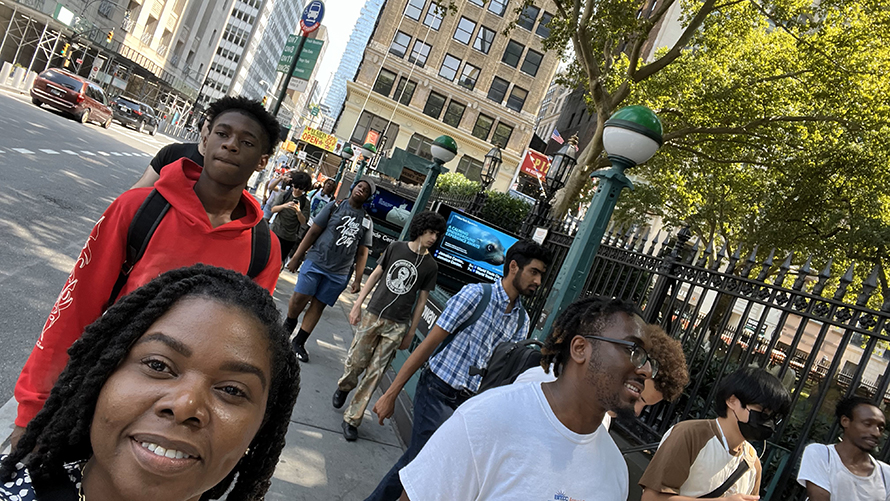
Making every voice heard
Two years ago, Pollard was offered the opportunity to direct the STEP program at the City University of New York Borough of Manhattan Community College, or BMCC, which has funding for up to 300 students to participate in STEP during the school year. She also oversees and manages the undergraduate research programs.
BMCC is a diverse institution, she said, and is great at "making sure multiple voices are being heard, multiple perspectives are being heard." she said.
She said the importance of "bringing every voice into a space" cannot be underestimated, and she is proud that BMCC hosts students of many nationalities. During her initial interview, she noticed the display of flags at the entrance representing all the students who attend the college. She said remembers thinking, “This is what diversity and inclusion are all about.”
Since 2023, Pollard has been a member of the American Society for Biochemistry and Molecular Biology Science Outreach and Communication Committee, which has exposed her to programs at institutions in a variety of settings.
"I get to hear what others are doing in different types of communities," she said. "Being a part of the committee opens your eyes that outreach may look different in different spaces, but the goals are still very much the same."
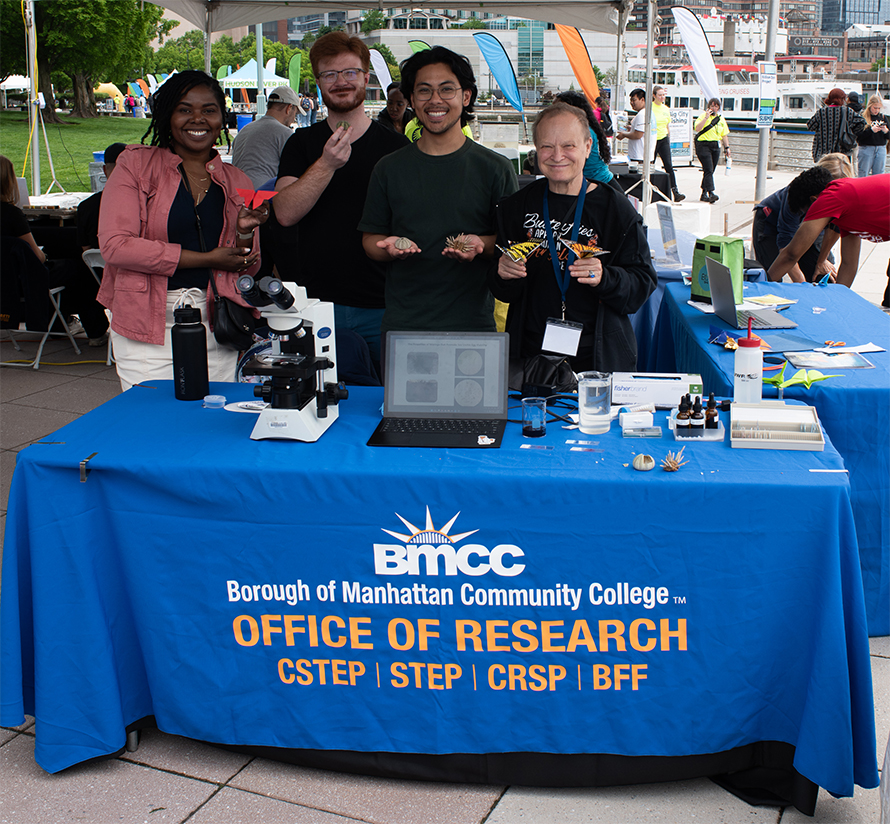
Enjoy reading ASBMB Today?
Become a member to receive the print edition four times a year and the digital edition monthly.
Learn moreFeatured jobs
from the ASBMB career center
Get the latest from ASBMB Today
Enter your email address, and we’ll send you a weekly email with recent articles, interviews and more.
Latest in People
People highlights or most popular articles

2026 ASBMB election results
Meet the new Council members and Nominating Committee member.

Simcox wins SACNAS mentorship award
She was recognized for her sustained excellence in mentorship and was honored at SACNAS’ 2025 National Conference.

From humble beginnings to unlocking lysosomal secrets
Monther Abu–Remaileh will receive the ASBMB’s 2026 Walter A. Shaw Young Investigator Award in Lipid Research at the ASBMB Annual Meeting, March 7-10 in Washington, D.C.

Chemistry meets biology to thwart parasites
Margaret Phillips will receive the Alice and C. C. Wang Award in Molecular Parasitology at the ASBMB Annual Meeting, March 7-10 in Washington, D.C.

ASBMB announces 2026 JBC/Tabor awardees
The seven awardees are first authors of outstanding papers published in 2025 in the Journal of Biological Chemistry.

Decoding how bacteria flip host’s molecular switches
Kim Orth will receive the Earl and Thressa Stadtman Distinguished Scientists Award at the ASBMB Annual Meeting, March 7–10, just outside of Washington, D.C.

